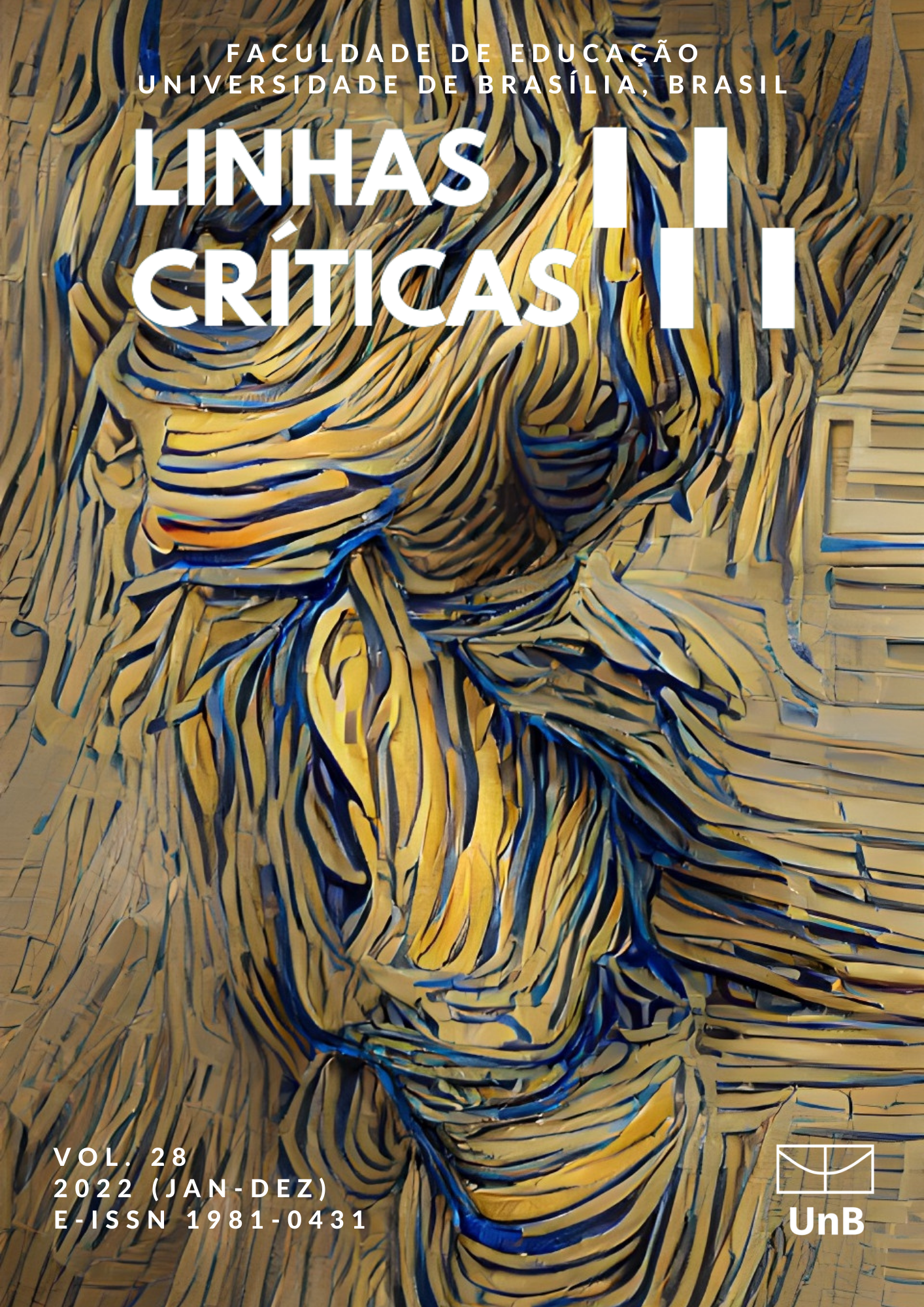The teacher influence on the constitution of student reader: some verifications
DOI:
https://doi.org/10.26512/lc28202243453Keywords:
Reading, School, MediationAbstract
The text presents results from quantitative-qualitative research on the reader profile of high school students who came from public schools in Feliz/RS and the contribution of their teachers to this construction. Theories about reading collaborated to the analysis of data which were compared with another research carried out with professors from the same teaching level. As findings, most students have positive memories of reading and the actions provided by the teachers contributed to the reader formation of their students.
Downloads
References
Alves, I., & Branchi, N. (2021). O perfil do professor-leitor de Língua Portuguesa, das séries finais, da rede municipal de Feliz/RS. Em D. Bernardes & D. C. Froehlich (Orgs.). Temas em Debate: contextos educacionais (pp. 176-227). Dictio Brasil.
Cerrillo, P. C. (2007). El lector literario. Fondo de Cultura Económica.
Cerrillo, P. C. (2016). Literatura infantil y juvenil y educación literaria: hacia una nueva enseñanza de la literatura. Ediciones Octaedro.
Colomer, T. (2007). Andar entre livros: A leitura literária na escola. Global.
Cosson, R. (2009). Letramento Literário: teoria e prática. Contexto.
Costa, K., Montiel, J. M., Bartholomeu, D., Murgo, C. S., & Campos, N. R. (2016). Percepção do suporte familiar e desempenho em leitura e escrita de crianças do ensino fundamental. Revista psicopedagogia, 33(101), 154-163. http://www.revistapsicopedagogia.com.br/detalhes/485/percepcao-do-suporte-familiar-e-desempenho-em-leitura-e-escrita-de-criancas-do-ensino-fundamental
Failla, Z. (2020). Retratos da Leitura no Brasil. Sextante.
Larrosa, J. (2003). La experiencia de la lectura. FCE.
Magnani, M. R. M. (2001). Leitura, Literatura e Escola: sobre a formação do Gosto. Martins Fontes.
Ondine, N. (2016). A utilidade do inútil. Companhia das Letras.
Perrone-Moisés, L. (2016). Mutações da literatura no século XXI. Companhia das Letras.
Petit, M. (2008). Os jovens e a leitura: uma nova perspectiva. Ed. 34.
Piaget, J. (1983). A epistemologia genética. Abril Cultural.
Rezende, N. L. (2013). O ensino de literatura e a leitura literária. Em M. A. Dalvi, R. Jover-Faleiros, & N. L. Rezende (Orgs.). Leitura de literatura na escola (pp. 99-111). Parábola.
Rösing, T., & Zilberman, R. (2009). Escola e leitura: velha crise, novas alternativas. Global.
Rouxel, A. (2013). Aspectos metodológicos do ensino da literatura. Em M. A. Dalvi, R. Jover-Faleiros, & N. L. Rezende (Orgs.). Leitura de literatura na escola (pp. 17-33). Parábola.
Santaella, L. (2013). Desafios da ubiquidade para a educação. Revista Ensino Superior Unicamp, 9(1), 19- 28. https://www.revistaensinosuperior.gr.unicamp.br/edicoes/edicoes/ed09_abril2013/NMES_1.pdf
Silva, E. T. da. (1983). Leitura e Realidade Brasileira. Mercado Aberto.
Soares, M. (1999). A escolarização da literatura infantil e juvenil. Em A. A. M. Evangelista, H. M. B. Brandão, & M. Z. V. Machado (Orgs.). A escolarização da leitura literária: o jogo do livro infantil e juvenil (pp. 18-43). Autêntica Editora.
Published
How to Cite
Issue
Section
License
Copyright (c) 2022 Natália Branchi, Izandra Alves

This work is licensed under a Creative Commons Attribution 4.0 International License.
Authors who publish in this journal agree to the following terms:
-Authors maintains the copyright and grants the journal the right of first publication, the work being simultaneously licensed under the Creative Commons Attribution License which allows the sharing of the work with recognition of the authorship of the work and initial publication in this journal.
- Authors are authorized to enter into additional contracts separately, for non-exclusive distribution of the version of the work published in this journal (eg publish in institutional repository or as a book chapter), with acknowledgment of authorship and initial publication in this journal.
-Authorers are allowed and encouraged to publish and distribute their work online (eg in institutional repositories or on their personal page) at any point before or during the editorial process, as this can generate productive changes as well as increase the impact and the citation of published work (See The Effect of Free Access).



